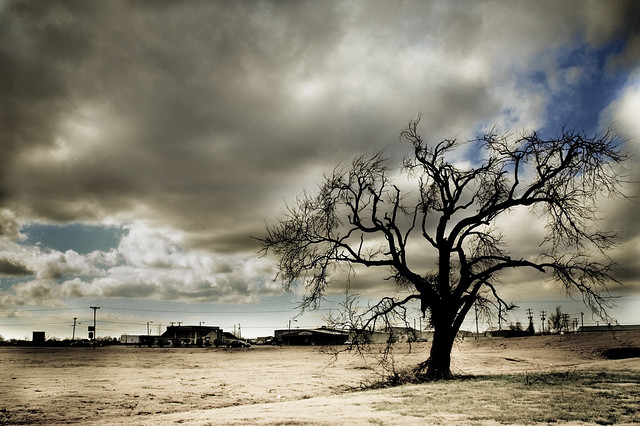
Desolation and Consolation
It is easy for us to see ourselves living in a world swinging between desolation and consolation, between despair and comfort.
Our dreams and expectations seem to have evaporated. We experience frustrations and disappointments and we remember the pain of each one.
Everything we believed was dependable and certain slips through our fingers like dust. People we love are threatened by diseases we had never heard of a month or two ago. Entire countries disappear from the globe in a matter of weeks.
Many of us feel like what we hold dear is brittle and vulnerable, breaking apart in our hands.
It is almost as though the long, cold, dark winter has lasted all year, longer than our patience.
How can we protect the people and truths which matter to us? Where can we turn for meaningful consolation?
Some of us look to be consoled by bathing ourselves in words. They may be our own words or those of other people.
We may read words from hundreds of years ago, or ones we have written ourselves. Some of us listen to words and music. Whether we are writing or reading or listening we seek our consolation in words.
Some of us immerse ourselves in conversations with family or friends. We hope their words will console us when we feel discouraged and alone.
Thinking back to times of consolation we remember birthday parties and long walks. Some of us depend on books or songs to console us.
We rely on other people to help us find the consolation we need to continue.
Each step of our journey requires the courage to struggle against resistance and frustration.
Some of us seek consolation in the world around us while others of us seek it within ourselves.
Experiencing Desolation
Some of the greatest lessons spiritual life has taught me are lessons of lamentation and grief. Some of the best gifts I have received come from my own dissatisfactions. We live days and weeks in which desolation and consolation are braided together.
For some, spiritual life sounds formal and repressed, filled with rules, as far from consolation as they can imagine. For others, spiritual life is something they need to work themselves into, building momentum. Consolation can feel like something they need to be put on to disguise themselves before they are seen by anyone else.
It enters our lives in the same ways light shines in darkness and the music of the universe is heard in stillness. When we most need it, when we feel coldest and most abandoned, we receive consolation.
Spiritual life is not a security blanket we wrap around ourselves when we feel cold and lonely. It is not a down comforter which makes us feel soft and safe and warm.
Consolation often comes to us as a last resort. When we have tried everything and everyone else and set them aside we listen to sacred stillness.
We get to a place where we are ready to stop struggling and look our fears and sorrow in the eye.
The world around us and within us is not what we expected it to be.
As we practice contemplative listening prayer we discover consolation in stillness.
We pause, and breathe in. Closing our eyes, breathing deeply, the consolation of spiritual life pours into us.
As we practice we start to learn how to set aside the chatter of our own minds. Listening to sacred stillness we begin to recognize the consolation in the stillness.
Breathing in and breathing out, we pay attention.
Seeking Consolation
We seek consolation which is more than simply feeling better. Spiritual life is not a pill we take each day to encourage us or make us happy.
Our consolation is deeper than a cup of coffee to keep us going. We appreciate the support we receive from other people, but we need more.
Consolation is not a psychological band aid when we fall down to help us get up again.
A contemplative practice of listening to sacred stillness helps us hear what is there. When we forget to listen, when we are distracted, when we feel sad or discouraged, it is still there.
We choose to pay attention and we are transformed by what we remember.
Our listening is about spending time in the presence of the life which reminds us. When we are frustrated or afraid, when we see desolation in our world, we listen and remember.
Consolation does not mean disasters and frustrations do not happen. We are consoled by the fact there is more.
The passion and effort and time we put into life is not wasted, even when it feels like nothing changes.
Listening to sacred stillness consoles us by showing us there is more than we thought there was.
Spiritual life is working within us and in the world around us.
The Consolation of Stillness in Winter
There are days when it is a challenge for us to remember back before winter began.
The dark, cold days stretch back to before we were paying attention. Even now, when we are saving daylight, it seems like a long time until spring.
Many of us do not see much outdoors to encourage us. We look into the world and see defeat and disease with entire countries quarantining themselves.
Where can we turn to find consolation?
We put our busy schedules on pause, close our eyes, take a deep breath, and listen.
Our contemplative practice of listening to sacred stillness consoles us. There is more than the pain and discouragement we feel each day.
We listen and sacred stillness reminds us. Stillness does not mean there is nothing there, nobody at home.
Listening to sacred stillness helps connect us to a larger, more significant reality. We find consolation in something and someone larger than we are.
Everyday life is more than what happens to us each day.
When will we take time to reflect on the desolation and consolation we experience today?
Where is there consolation in desolation this week?
[Image by .aditya.]
Greg Richardson is a spiritual director in Southern California. He is a recovering assistant district attorney and associate university professor and is a lay Oblate with New Camaldoli Hermitage near Big Sur, California. Greg’s website is http://StrategicMonk.com and his email address is [email protected].












